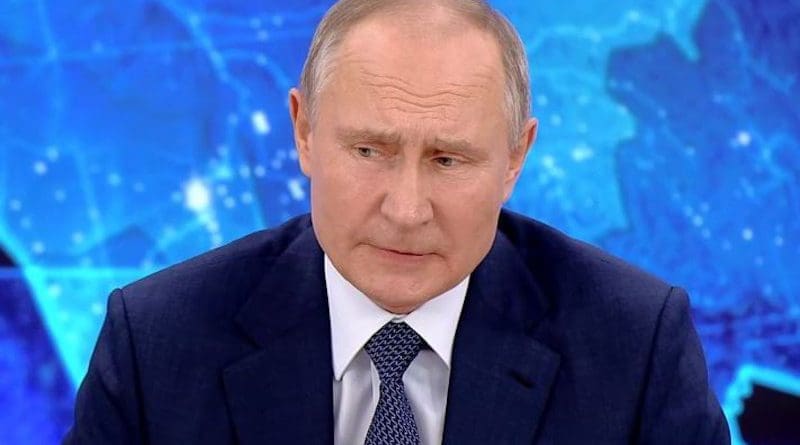Putin’s Murder Of Navalny Gives Permission To Dictators Everywhere To Do Their Worst – OpEd
By Paul Goble
The world must understand that Putin by murdering Aleksey Navalny has “opened the abyss of permissiveness” to dictators everywhere, including in Belarus, something that threatens to “drag the entire world into a world war” in much the same way Hitler did in the last century, Svetlana Alexievich says.
The Belarusian Nobelist says people around the world are “stunned” by this murder and by the fact that the situation has reached the point where what had been unimaginable is becoming commonplace (d1a9nnmcvk9pjz.cloudfront.net/ru/336673; excerpts reposted at meduza.io/feature/2024/02/18/novyy-gitler-s-novymi-tehnologiyami-strashnee-togo-chto-my-znaem-iz-istorii).
History teaches that “dictators learn from each other.” What one gets away with other will try. And this case, Alexievich says, “Navalny’s death has opened an abyss of permissiveness for dictators all over the world and even more than elsewhere in Belarus” where there are “almost 2,000 political prisoners sitting in punishment cells.”
After Navalny’s murder, “it feels like we could find out the worst about them at any moment,” she continues. Indeed, “now we can expect everything. The powers that be have received just such an indulgence: it turns out those in power can do anything and the world and the country will be helpless and the authorities unpunished.”
“That is the worst thing,” she continues.
Nonetheless, there remains the hope that finally the world will understand that “Putin, like Hitler, is capable of dragging everyone into a world war. He will not stop. We need to help Ukraine as much as possible or we will be compelled to pay a higher price as the new Hitler with his new technologies will be worse than the historical one.”
Putin “is cruel. He is a KGB officer, not a politician; and consequently, you can expect anything from him.” He has just confirmed that by murdering Navalny. The world needs to stop him before the situation deteriorates any further, Alexievich concludes.

